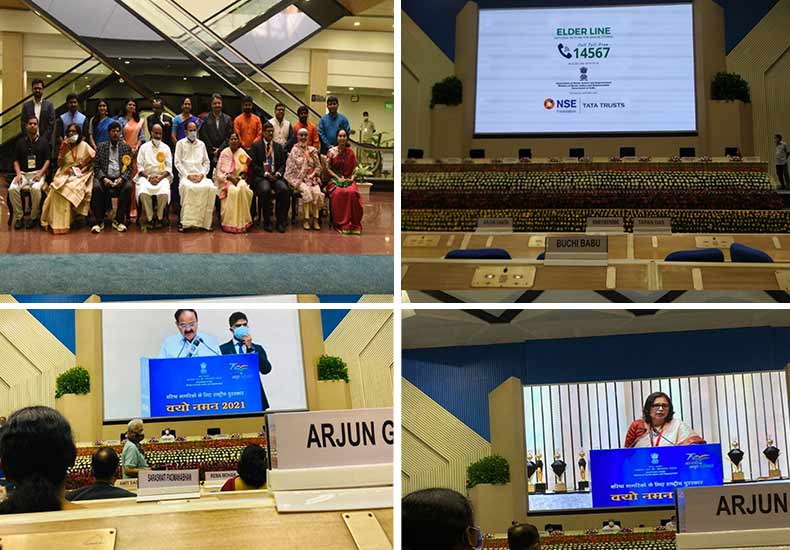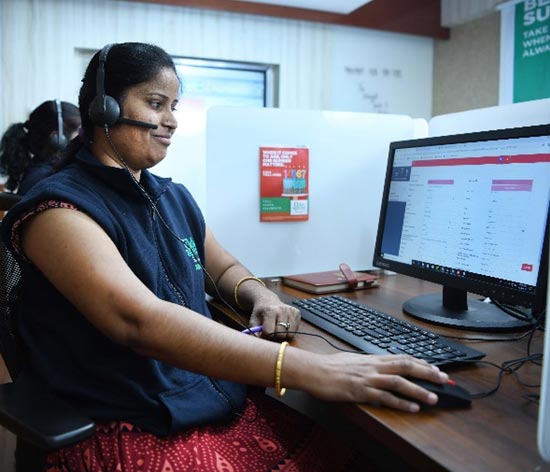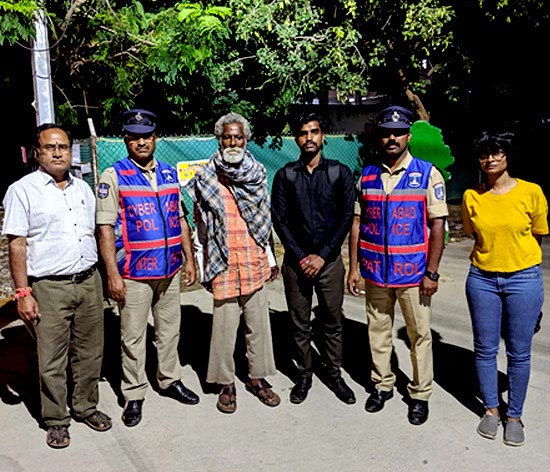About the theme
As a developing nation, India has further to go to adapt to the needs of an ageing population, and with the challenge of lower levels of disposable income. India ranks 2nd in the 60+ demographic and 3rd in the 80+ or ‘oldest old’ demographics in the world. This is because life expectancy in India has increased by 18 years in the past five decades.
The result is an ageing population, with a consequent increase in non-communicable diseases such as cardiovascular disorders, diabetes, hypertension, etc. Other challenges are the toll on public healthcare systems, low penetration of health insurance, inadequate number of old-age homes, etc.
The concern is that this aging demographic has been largely neglected by governments, by organisations, by individuals and even their own children. According to the 2011 Census, over 47% of the elderly in rural areas and 20.5% in urban centres continue to work. The need of the hour, therefore, is to exponentially increase interventions that improve the quality of life of the elderly.
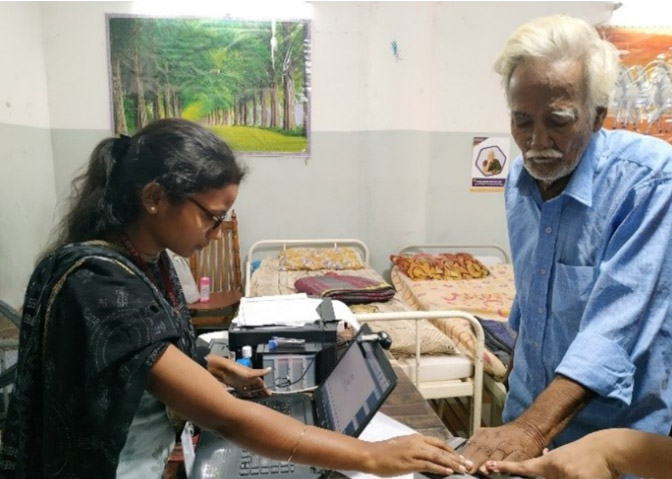
The Tata Trusts aim to play a transformational role in the geriatric sector by focusing on critical gap areas to create an empathetic ecosystem. Initiated in October 2017, the Trusts’ elder-care initiatives were aimed at serving the relevant needs of the elderly in India, 71% of whom live in rural areas. The goal then, as now, is to improve their quality of life through caregiving, decreasing their dependency and generating social and economic opportunities.
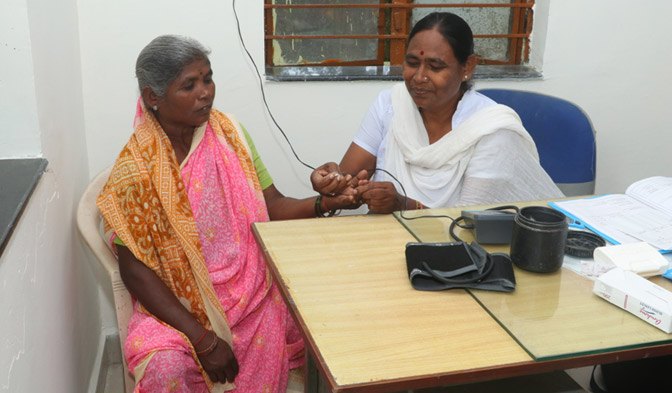
The comprehensive elder-care initiatives covered preventive, curative, promotive and rehabilitative treatment for the overall well-being of older people. This programme was customised to fit ageing populations in both rural and urban areas.
The urban model focuses on transforming urban centres into age-friendly cities that optimise opportunities for health, participation and security in order to enhance the lives of the elderly. Launched in Bhubaneswar in partnership with the Government of Odisha, a multi-activity centre was set up that offers spiritual discussions, entertainment, yoga classes, awareness and digital literacy sessions, health check-ups, etc. Another such centre was inaugurated in Hyderabad, in collaboration with the Durgabai Deshmukh Mahila Sabha, and with the support of Tata Advanced Systems Limited.
Due to the lockdown, the centres in Bhubaneshwar and Hyderabad were both shut down. The activities in both centres were converted into virtual activities for those who could participate through WhatsApp groups or through other meeting mediums.
The rural model focuses on addressing the basic health needs of the elderly in rural areas through the National Programme for Health Care of Elderly (NPHCE), a central government initiative.
The Trusts collaborated with the district administration, the health department, and gram panchayats in a few selected districts — Chandrapur (Maharashtra), Medak (Telangana), and Yadgir (Karnataka) — to identify needs and gaps and address the same. In Maharashtra, this experience was scaled to five more districts. In Telangana, the state government expanded it to the entire state. Based on the Chandrapur experience, a similar model was initiated in Nandurbar in partnership with the NSE Foundation.
In Hyderabad, a response system (helpline) was set up to enable elder-care solutions on a single platform. This makes it easy for elders to call for guidance. Accessible through a toll-free number 14567 — it provides free information, counselling, emotional support and field services that focus on elder needs such as elder care, abandonment, support for victims of abuse, legal advice and pension-related help. During the lockdown phase, the Ministry of Social Justice and Empowerment (MJSE) took over the system to scale it across the nation with the help of state governments. It was opened in 8 states as a National Helpline on 17 May 2021. The Trusts will function as a knowledge partner to the Ministry in facilitating the expansion. The Ministry has allocated Rs250 crore spread over the next five years for this purpose.
A digital platform was also developed with a focus on an easy-to-use, trusted, digital place for the elderly and their caregivers. This allows elders to engage with their peers in online communities, and find opportunities to volunteer or earn income in their local communities. The platform’s technology-driven design enables transparent crowdsourcing for ratings and reviews. The aim is to make this a self-sustainable platform that serves the needs of the elderly across the nation.
In addition, as part of one of the National Task Force members set up by MSJE, the Trusts have contributed to the National Action Plan for Senior Citizens (NAPSrC). Being part of the Empowered Committee set up by MSJE, the Trusts have contributed to the scheme development for senior citizens. The Trusts have also made recommendations to the Parliamentary Committee for the Amendment of the Maintenance and Welfare of Senior Citizens Act, 2007. The Trusts are also a part of the taskforce on senior care set up by CII.
Areas of Operation
- Maharashtra (Rural)
- Karnataka (Rural)
- National level (as a Knowledge Partner to MSJE for setting up the National Helpline)
Activity Centre for Elderly in Bhubaneswar; July 2020: Read the report on a pilot project to understand the benefits of community engagement for the elderly in an urban setting
Further Reading: Rural Elderly and Their Quest for Health
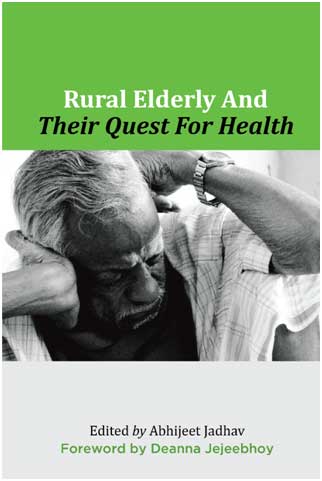 This decade (2021-30) is dedicated to Healthy Ageing by the UN and the book, “Rural Elderly and Their Quest for Health” will go a long way to serve that purpose. Edited by Abhijeet Jadhav (Senior Researcher, Vikas Anvesh Foundation, a Tata Trusts’ initiative) and with a foreword by Deanna Jejeebhoy (Managing Trustee, Sir JJ Dharamshala), this book an effort to begin a comprehensive idea of the current status of the health of India’s rural elder population, with each of its 12 chapters focusing on a specific dimension of elder health. The book details macro-level phenomena from demographic transition to epidemiological transition and age-related diseases that can help us understand future population trends and health challenges. Conceptual aspects of aging, elder rights, health and welfare programmes, future human resource needs for geriatric and palliative care have also been dealt with at length.
This decade (2021-30) is dedicated to Healthy Ageing by the UN and the book, “Rural Elderly and Their Quest for Health” will go a long way to serve that purpose. Edited by Abhijeet Jadhav (Senior Researcher, Vikas Anvesh Foundation, a Tata Trusts’ initiative) and with a foreword by Deanna Jejeebhoy (Managing Trustee, Sir JJ Dharamshala), this book an effort to begin a comprehensive idea of the current status of the health of India’s rural elder population, with each of its 12 chapters focusing on a specific dimension of elder health. The book details macro-level phenomena from demographic transition to epidemiological transition and age-related diseases that can help us understand future population trends and health challenges. Conceptual aspects of aging, elder rights, health and welfare programmes, future human resource needs for geriatric and palliative care have also been dealt with at length.
‘Rural Elderly and Their Quest for Health’ is compiled with the hope that beyond being a knowledge resource, it will spur positive action. The Government of India’s ‘Ayushman Bharat’ programme aims to revive and revamp the primary, secondary and tertiary healthcare system with a stronger focus on prevention, health promotion and wellness. The Ayushman Bharat Health & Wellness Centre Report, April 2018-2019, highlights the progress made by the government’s health care centres and also shines a spotlight on best practices across the country that can be replicated and scaled. The Trusts’ Comprehensive Elder Care Programme in Chandrapur has been cited as a best practice in the report. (Page 53)
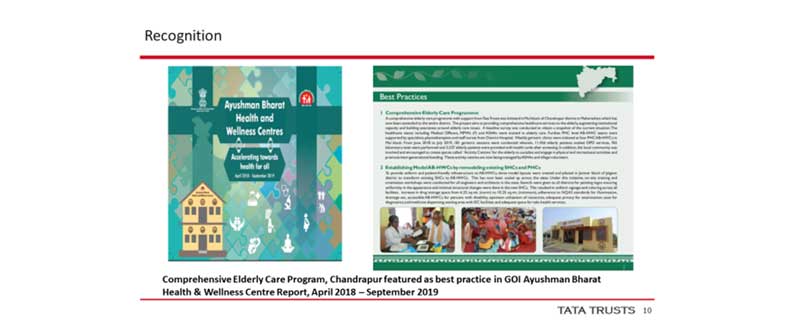
The Government of India’s ‘Ayushman Bharat’ programme aims to revive and revamp the primary, secondary and tertiary healthcare system with a stronger focus on prevention, health promotion and wellness. The Ayushman Bharat Health & Wellness Centre Report, April 2018-2019, highlights the progress made by the government’s health care centres and also shines a spotlight on best practices across the country that can be replicated and scaled. The Trusts’ Comprehensive Elder Care Programme in Chandrapur has been cited as a best practice in the report. (Page 53)
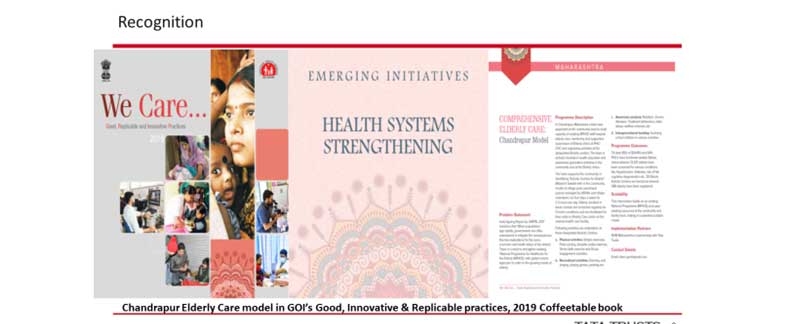
The National Summit on Good and Reliable Practices and Innovations in Public Healthcare Systems in India is the institutional mechanism for the sharing of innovations supported by the National Health Mission. The Government of India’s annual publication captures best practices and innovations, including health programmes, medical devices and technologies. The Trusts’ Comprehensive Elder Care Model in Chandrapur find a place in the “Emerging Initiatives – Health Systems and Strengthening” section of the sixth issue. (Pages 135-6)
News on the National Helpline
https://pib.gov.in/PressReleasePage.aspx?PRID=1719318
https://theprint.in/india/states-miss-deadline-to-set-up-helpline-for-elderly-during-covid-govt-says-but-covids-to-blame/672053/
https://newsroompost.com/india/up-govt-launches-elderline-a-toll-free-helpline-to-comfort-senior-citizens-amid-pandemic/1292120.html
https://www.timesnownews.com/india/article/four-national-helpline-numbers-issued-by-government-that-you-should-keep-handy/763765
Sugandhi Baliga gets awarded by Vedica Women’s Alliance! Read more
